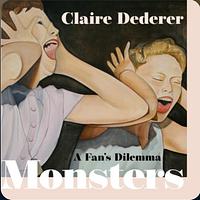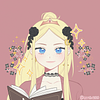Take a photo of a barcode or cover
challenging
emotional
funny
informative
reflective
fast-paced
reflective
slow-paced
Graphic: Alcoholism, Domestic abuse, Pedophilia, Rape
challenging
emotional
hopeful
informative
reflective
medium-paced
Graphic: Alcoholism, Child abuse, Domestic abuse, Rape, Sexual violence, Abandonment
Moderate: Drug abuse, Physical abuse, Racism, Antisemitism, Murder
Minor: War
dark
reflective
medium-paced
challenging
informative
reflective
slow-paced
I think this possibly wasn’t the right time for me or maybe it didn’t work as a an audiobook for me. It felt tangential in a way that was difficult for me to follow. I might just be too dumb for this and should stick to the essay. But I very much enjoyed some parts
I really like the subject matter and this book is also semi-autobiographical, about the author’s quest to find out whether you can ethically consume art by monsters.
The book really hit home as this quest has also been a part of my life for a long time. My world stopped when I found out some of my favorite artists were monsters. But it also feels like injustice. Because the world keeps turning for people who are less affected by it (usually men). I’ve yet to meet a man who stopped watching Polanski movies. Why should other people have more claim to art then those with a strong sense of justice.
In the end the role of the consumer is explored. I don’t really fully agree with the author on the conclusion and also feels like a way to cope.
But then again, some very valid points are raised such as love of the work, beauty, justice, and the love we have for imperfect people in our daily life.
So yes, I think our consumption can impact the message we give. If we give Polanski prizes I think it also conveys a message and silences survivors.
Like any personal essay, I think this book is perfect for finding points you can relate to, and engaging with the points you can’t relate to.
In the end, this is such an important piece of literature and a conversation we should keep having.
I think the book could have cut some detours. It also felt she was grasping at straws to find female monsters and found them mostly in women who abandon their children. Which is shitty, but something men have done for ages.
The book really hit home as this quest has also been a part of my life for a long time. My world stopped when I found out some of my favorite artists were monsters. But it also feels like injustice. Because the world keeps turning for people who are less affected by it (usually men). I’ve yet to meet a man who stopped watching Polanski movies. Why should other people have more claim to art then those with a strong sense of justice.
In the end the role of the consumer is explored. I don’t really fully agree with the author on the conclusion and also feels like a way to cope.
But then again, some very valid points are raised such as love of the work, beauty, justice, and the love we have for imperfect people in our daily life.
So yes, I think our consumption can impact the message we give. If we give Polanski prizes I think it also conveys a message and silences survivors.
Like any personal essay, I think this book is perfect for finding points you can relate to, and engaging with the points you can’t relate to.
In the end, this is such an important piece of literature and a conversation we should keep having.
I think the book could have cut some detours. It also felt she was grasping at straws to find female monsters and found them mostly in women who abandon their children. Which is shitty, but something men have done for ages.
reflective
medium-paced
reflective
challenging
dark
emotional
informative
reflective
medium-paced
challenging
informative
reflective
medium-paced
Graphic: Alcoholism, Child abuse, Rape, Sexual assault, Abandonment
Moderate: Domestic abuse, Drug abuse, Physical abuse, Transphobia








